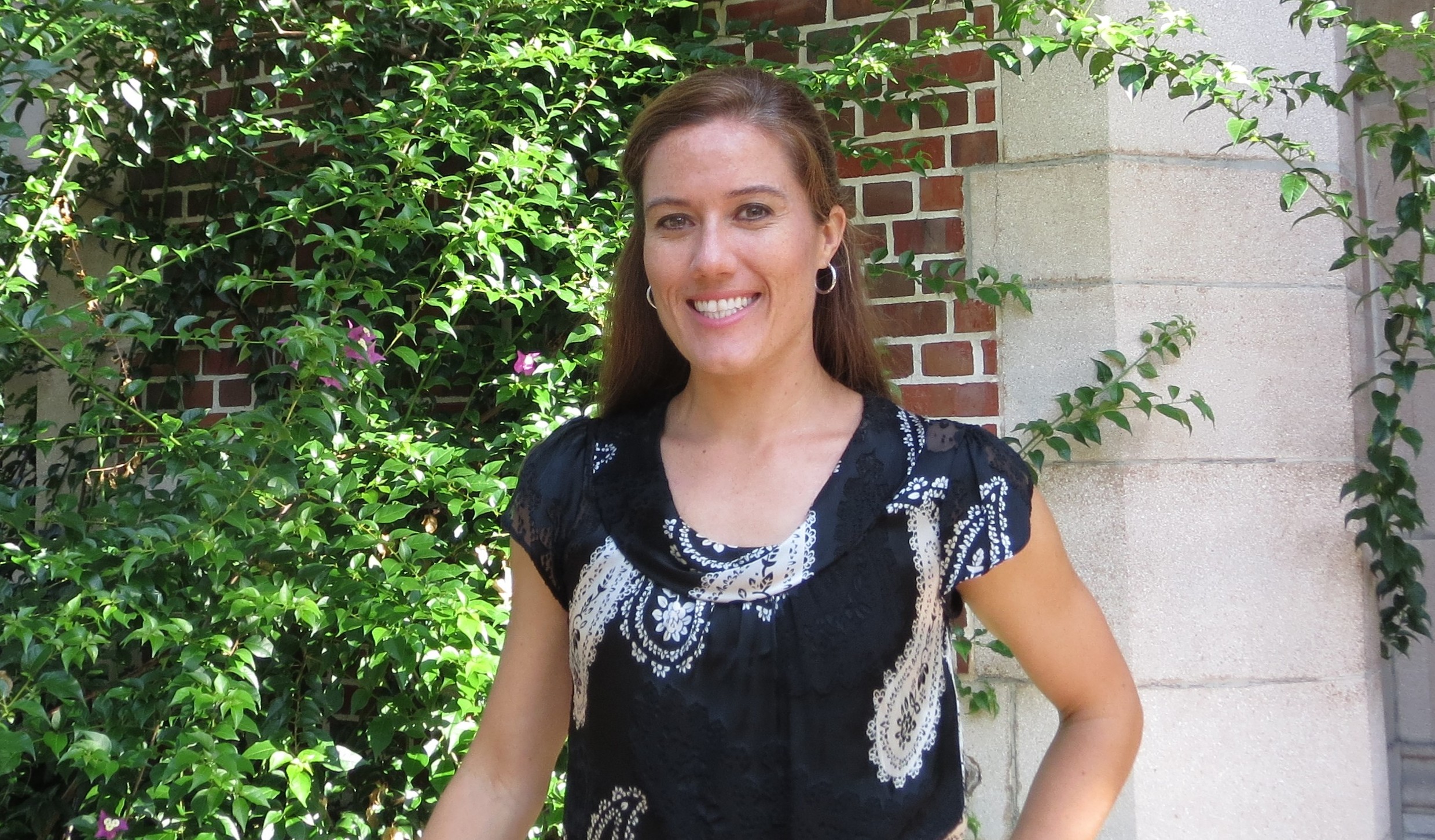Erin Conlin, a PhD candidate in twentieth century U.S. History at the University of Florida, is a SPOHP Graduate Coordinator. She began working at SPOHP in Fall 2012 and is currently a visiting scholar at Concordia University’s Centre for Oral History and Digital Storytelling.
As a Graduate Coordinator, Erin coordinated SPOHP’s academic internship in Fall 2013 and Spring 2013, teaching the class and supervising its projects, including the community-oriented Holy Trinity Episcopal Church Collection and Oral History Documentary. She developed and organized UF’s Introduction to Oral History class for Summer B, and assisted students in transcribing and editing the interviews they collected. Erin also crafted the curriculum proposal from the UF Department of History’s recently-approved BA/MA (4-1) Oral History Program.
In her “Introduction to Oral History” course, Erin’s students focused on the community-based component of oral history and conducted interviews through the Farmworker Association of Florida (FWAF) to get a firsthand perspective on Florida’s farming history. To gather the interviews, the class traveled to Apopka, Florida during the six-week course and listened to stories from African American, Haitian, and Latino farmworkers. At the end of the course, students transcribed their interviews and created digital podcasts. The podcasts identified a central theme from the interviews by mixing student narrations with interviewees’ memories and stories to articulate the topic. Students completed the class with a foundational understanding of oral history skills, as well as historical context of the contemporary issue of U.S. labor and immigration policy.
After working for several years in secondary education, Erin decided to pursue a PhD in history for the ability to create a class around a more specialized topic such as this. Shedding light on this important issue was gratifying for Erin and her students, many of whom were Florida natives, and previously unaware of the injustices facing farmworkers just a couple hours south.
Erin’s dissertation focuses on Florida’s evolving agricultural labor regimes from the 1910s to 1960s by examining Bahamian workers’ long migratory history to Florida for seasonal agricultural work. Although not as entrenched in slave labor like other Southern states, Florida employers embraced debt peonage, convict leasing and other coercive practices after the Civil War as a means of exercising strict control over the workforce. However, these harsh practices increasingly came under federal and public scrutiny during the 1920s and 1930s, the same period in which agriculture was gaining importance as an economic engine for the state. Florida’s growers, unable to take advantage of the earlier, overtly coercive regimes, sought to create a new labor system, but one that would replicate the element of control in a new, more acceptable way. Many argued imported foreign labor was the solution to their quest for a quiescent labor supply. By 1943, they succeeded in securing a formal guestworker program. Bahamians were paid low wages, and often suffered poor living and working conditions.
Unfortunately, these problems persisted after the formal end of the program in 1966, impacting the lives of the African American and Latino farmworkers who filled the void left by Bahamians. In studying the lives of Florida’s farmworkers, Erin examines the evolution of the state’s labor, bringing the narrative to present-day and examining how and why foreign laborers are still entrenched in similar situations. She hopes her work will be useful in crafting more thoughtful and effective immigration and labor policy.
Since August, Erin has been as a visiting scholar at the Centre for Oral History and Digital Storytelling at Concordia University in Montreal, Canada, where she will be for the 2013-2014 academic year. While at the Centre, Erin attends workshops and roundtables, and is able to work to complete her dissertation around the program’s flexible schedule. The Centre, which makes innovative use of new technologies in oral history, focuses on large-scale oral history projects.
In January, Erin will be presenting her own workshop at the Centre, “Introduction to Oral History Interviewing” where she will discuss about the interviewing principles we rely on at SPHOP to craft the workshop. Next semester, Erin will also be presenting her dissertation research at a roundtable, which she hopes to use as an opportunity to broaden the discussion to talk about labor and immigration policies and practices in Canada, since Canada also imports foreign workers to do certain jobs.
Contact: Erin Conlin.
